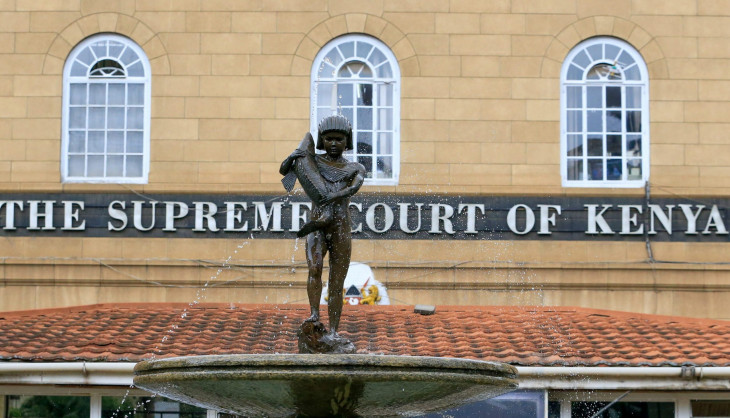Judicial officers must protect, respect dignity of all
By PD columnist, December 14, 2022Our recent constitutional history has taught us a number of important lessons.
The first one is that the work of liberty is never done; and that the art of perfecting the Constitution, especially the Transformative variety like ours – imbuing it with contextual meanings that speak to the lived realities of the people – is never completed. It is always an on-going work; beckoning each generation to translate their struggles for social justice within its bounds; calling them to script their quotidian quests for social meaning, equality, equity, solidarity and fraternity in its deliberate grammar of justice.
This is exactly why Kenyans created for themselves the kind of Judiciary they have in the Constitution: a robustly independent Judiciary – peopled by judges and judicial officers who are competent to translate social struggles into constitutional and legal meanings.
The Kenyan people rejected the image of the judge as a High Priest of technocracy adept at performing root-canal formalist analysis to preserve the status quo or bring about oppressive majoritarian change. Instead, they created a judge who is infused with a value-laden ethos of Transformation informed by our history and our collective ambition as a people.
The ethos they infused in the conscientious judge is inscribed, first, in Article 19 of the Constitution which informs the judge (and all Kenyans) that the purpose of recognising and protecting human rights and fundamental freedoms is, first, to preserve the dignity of individuals and communities; second, to promote social justice and third, to promote realisation of the potential of all human beings. We – judges and judicial officers – must never forget this solemn and pro-active responsibility Kenyans have placed in our hands:
Protect dignity of all.
Promote social justice for all.
Promote the potential of all human beings.
This is the kind of stuff that attracted me to the law in the first place.
I must add that while I prayed to be a human rights lawyer like Paul Muite, I must have forgotten to also pray to be a successful and rich litigator like him: I was granted what I prayed for only – the human rights part – while, of course, I took a vow of poverty in being, first, a law professor, and then, as if that was not bad enough, a judge. The second lesson from our recent constitutional history is the durability of our Constitution. Many Kenyans now say our Constitution is capable of fighting for itself. I think Kenyans are right. Indeed, it is the beauty and the promise of this Constitution that beckoned me from the relative comfort of William Gates Hall at the University of Washington School of Law as a tenured Associate Professor of Law to come home and become a High Court Judge in 2011. This Constitution triggers in me my native optimism for Kenya and I wanted so badly to be part of its implementation. I realised that our Transformative Constitution has its own ammunition to barricade itself from destruction. It gives the ammunition to those ready to defend it or those charged with the responsibility to interpret it such as judges. The Constitution is radical in including its own theory of interpretation to prevent the elites from subverting it. It is also Transformative in three key ways.
First, it protects the few from the many politically. Second, it protects the many from the few economically. Third, it protects the weak from the powerful structurally. In these three protections, the Constitution is a powerful emancipatory tool for all Kenyans: to preserve their dignity; to promote social justice; to promote the potential of all human beings.
However, it is important to acknowledge, even as we celebrate the durability of our Constitution, that there are dark clouds looming. The single greatest threat to our constitutional democracy is the failure to animate credible mechanisms for sharing our resources and prosperity as a country. There is a reason the Constitution pairs human dignity with social justice: there can be no human dignity in the midst of iniquitous want of basic human and social needs for the greater majority of the population while others swim in depraved opulence.
— The writer is a Kenyan Court of Appeal judge. This is an edited version of his acceptance speech for Jurist of the Year Award, 2022
